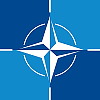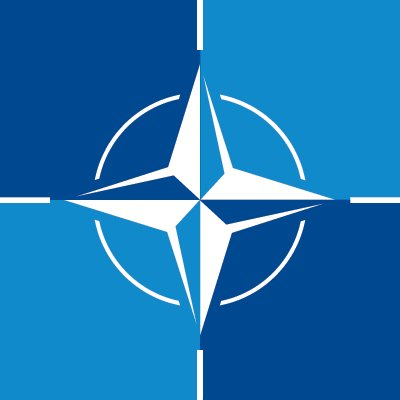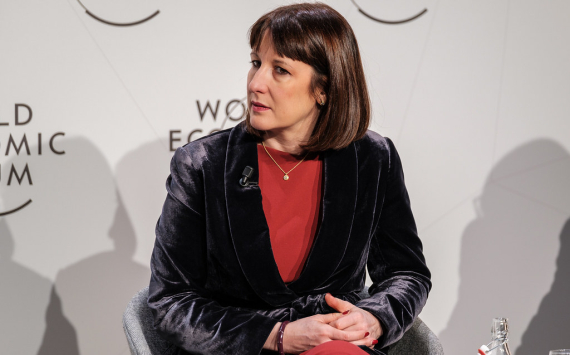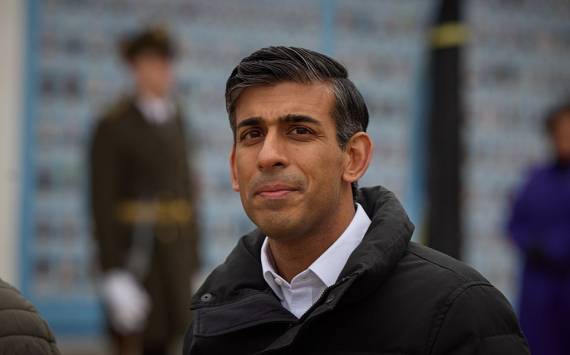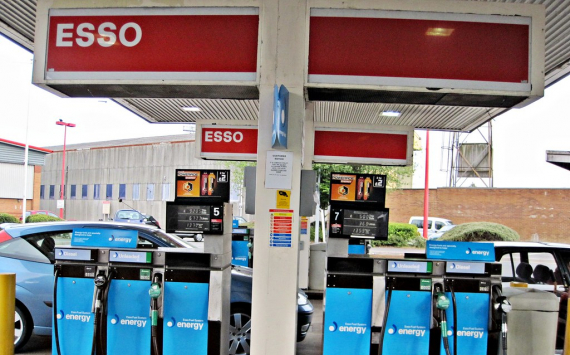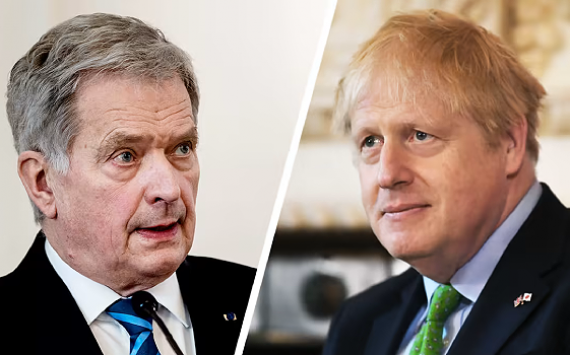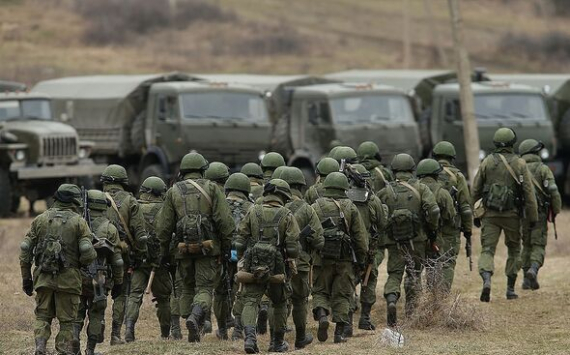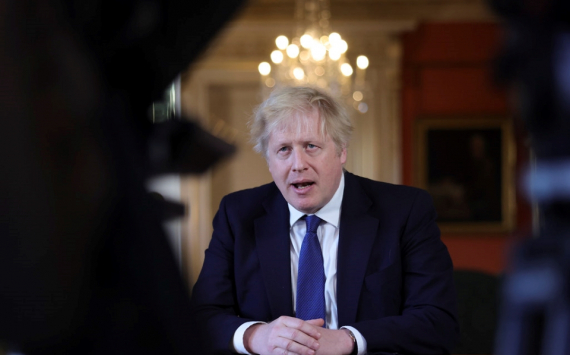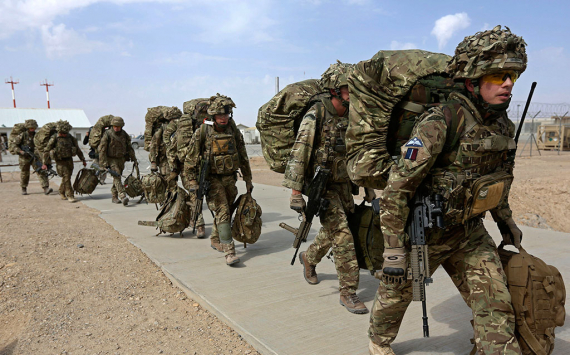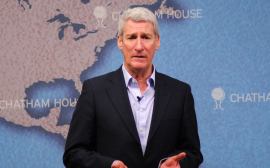Description
The North Atlantic Treaty Organization (NATO, /ˈneɪtoʊ/; French: Organisation du traité de l'Atlantique nord, OTAN), also called the North Atlantic Alliance, is an intergovernmental military alliance between 28 European countries and 2 North American countries. The organization implements the North Atlantic Treaty that was signed on 4 April 1949.
NATO constitutes a system of collective security, whereby its independent member states agree to mutual defense in response to an attack by any external party. The NATO headquarters are located in Brussels, Belgium, while the headquarters of Allied Command Operations is near Mons, Belgium.
Since its founding, the admission of new member states has increased the alliance from the original 12 countries to 30. The most recent member state to be added to NATO was North Macedonia on 27 March 2020. NATO currently recognizes Bosnia and Herzegovina, Georgia, and Ukraine as aspiring members. An additional 20 countries participate in NATO's Partnership for Peace programme, with 15 other countries involved in institutionalized dialogue programmes. The combined military spending of all NATO members in 2020 constituted over 57% of the global nominal total. Members agreed that their aim is to reach or maintain the target defence spending of at least 2% of their GDP by 2024.
History
On 4 March 1947, the Treaty of Dunkirk was signed by France and the United Kingdom as a Treaty of Alliance and Mutual Assistance in the event of a possible attack by Germany or the Soviet Union in the aftermath of World War II. In 1948, this alliance was expanded to include the Benelux countries, in the form of the Western Union, also referred to as the Brussels Treaty Organization (BTO), established by the Treaty of Brussels. Talks for a new military alliance, which could also include North America, resulted in the signature of the North Atlantic Treaty on 4 April 1949 by the member states of the Western Union plus the United States, Canada, Portugal, Italy, Norway, Denmark and Iceland.
The North Atlantic Treaty was largely dormant until the Korean War initiated the establishment of NATO to implement it, by means of an integrated military structure: This included the formation of Supreme Headquarters Allied Powers Europe (SHAPE) in 1951, which adopted the Western Union's military structures and plans, including STANAGs and bipartite SOFAs. In 1952, the post of Secretary General of NATO was established as the organization's chief civilian. That year also saw the first major NATO maritime exercises, Exercise Mainbrace and the accession of Greece and Turkey to the organization. Following the London and Paris Conferences, West Germany was permitted to rearm militarily, as they joined NATO in May 1955, which was, in turn, a major factor in the creation of the Soviet-dominated Warsaw Pact, delineating the two opposing sides of the Cold War.
The building of the Berlin Wall in 1962 marked a height in Cold War tensions, when 400,000 US troops were stationed in Europe. Doubts over the strength of the relationship between the European states and the United States ebbed and flowed, along with doubts over the credibility of the NATO defence against a prospective Soviet invasion – doubts that led to the development of the independent French nuclear deterrent and the withdrawal of France from NATO's military structure in 1966. In 1982, the newly democratic Spain joined the alliance.
The Revolutions of 1989 in Europe led to a strategic re-evaluation of NATO's purpose, nature, tasks, and focus on that continent. In October 1990, East Germany became part of the Federal Republic of Germany and the alliance, and in November 1990, the alliance signed the Treaty on Conventional Armed Forces in Europe (CFE) in Paris with the Soviet Union. It mandated specific military reductions across the continent, which continued after the collapse of the Warsaw Pact in February 1991 and dissolution of the Soviet Union in that December, which removed the de facto main adversaries of NATO. This began a draw-down of military spending and equipment in Europe. The CFE treaty allowed signatories to remove 52,000 pieces of conventional armaments in the following sixteen years, and allowed military spending by NATO's European members to decline by 28% from 1990 to 2015.
In the 1990s, the organization extended its activities into political and humanitarian situations that had not formerly been NATO concerns. During the break-up of Yugoslavia, the organization conducted its first military interventions in Bosnia from 1992 to 1995 and later Yugoslavia in 1999. These conflicts motivated a major post-Cold War military restructuring. NATO's military structure was cut back and reorganized, with new forces such as the Headquarters Allied Command Europe Rapid Reaction Corps established. The changes brought about by the collapse of the Soviet Union on the military balance in Europe since the CFE treaty were recognized in the Adapted Conventional Armed Forces in Europe Treaty, which was signed at the 1999 Istanbul summit.
Politically, the organization sought better relations with the newly autonomous Central and Eastern European nations, and diplomatic forums for regional cooperation between NATO and its neighbours were set up during this post-Cold War period, including the Partnership for Peace and the Mediterranean Dialogue initiative in 1994, the Euro-Atlantic Partnership Council in 1997, and the NATO–Russia Permanent Joint Council in 1998. At the 1999 Washington summit, Hungary, Poland, and the Czech Republic officially joined NATO, and the organization also issued new guidelines for membership with individualized "Membership Action Plans". These plans governed the addition of new alliance members: Bulgaria, Estonia, Latvia, Lithuania, Romania, Slovakia, and Slovenia in 2004, Albania and Croatia in 2009, Montenegro in 2017, and North Macedonia in 2020. The election of French President Nicolas Sarkozy in 2007 led to a major reform of France's military position, culminating with the return to full membership on 4 April 2009, which also included France rejoining the NATO Military Command Structure, while maintaining an independent nuclear deterrent.
Article 5 of the North Atlantic treaty, requiring member states to come to the aid of any member state subject to an armed attack, was invoked for the first and only time after the September 11 attacks, after which troops were deployed to Afghanistan under the NATO-led ISAF. The organization has operated a range of additional roles since then, including sending trainers to Iraq, assisting in counter-piracy operations and in 2011 enforcing a no-fly zone over Libya in accordance with UN Security Council Resolution 1973. Article 4, which merely invokes consultation among NATO members, has been invoked five times following incidents in the Iraq War, Syrian Civil War, and Russia's annexation of Crimea. This annexation led to strong condemnation by NATO nations and the creation of a new "spearhead" force of 5,000 troops at bases in Estonia, Lithuania, Latvia, Poland, Romania, and Bulgaria. At the subsequent 2014 Wales summit, the leaders of NATO's member states formally committed for the first time to spend the equivalent of at least 2% of their gross domestic products on defence by 2024, which had previously been only an informal guideline. In 2014, only 3 out of 30 NATO members reached this target (including the US); by 2020 this had increased to 11. Taken together, in 2020, the 29 non-US member states had six consecutive years of defence spending growth, bringing their average spending to 1.73% of GDP. NATO did not condemn the 2016–present purges in Turkey. As a result of the Turkish invasion of Kurdish-inhabited areas in Syria, Turkey's intervention in Libya and the Cyprus–Turkey maritime zones dispute, there are signs of a schism between Turkey and other NATO members. NATO members have resisted the UN's Nuclear Weapon Ban Treaty, a binding agreement for negotiations for the total elimination of nuclear weapons, supported by more than 120 nations.
Military operations
Early operations
No military operations were conducted by NATO during the Cold War. Following the end of the Cold War, the first operations, Anchor Guard in 1990 and Ace Guard in 1991, were prompted by the Iraqi invasion of Kuwait. Airborne early warning aircraft were sent to provide coverage of southeastern Turkey, and later a quick-reaction force was deployed to the area.
Bosnia and Herzegovina intervention
The Bosnian War began in 1992, as a result of the break-up of Yugoslavia. The deteriorating situation led to United Nations Security Council Resolution 816 on 9 October 1992, ordering a no-fly zone over central Bosnia and Herzegovina, which NATO began enforcing on 12 April 1993 with Operation Deny Flight. From June 1993 until October 1996, Operation Sharp Guard added maritime enforcement of the arms embargo and economic sanctions against the Federal Republic of Yugoslavia. On 28 February 1994, NATO took its first wartime action by shooting down four Bosnian Serb aircraft violating the no-fly zone.
On 10 and 11 April 1994, the United Nations Protection Force called in air strikes to protect the Goražde safe area, resulting in the bombing of a Bosnian Serb military command outpost near Goražde by two US F-16 jets acting under NATO direction. In retaliation, Serbs took 150 U.N. personnel hostage on 14 April. On 16 April a British Sea Harrier was shot down over Goražde by Serb forces.
In August 1995, a two-week NATO bombing campaign, Operation Deliberate Force, began against the Army of the Republika Srpska, after the Srebrenica genocide. Further NATO air strikes helped bring the Yugoslav wars to an end, resulting in the Dayton Agreement in November 1995. As part of this agreement, NATO deployed a UN-mandated peacekeeping force, under Operation Joint Endeavor, named IFOR. Almost 60,000 NATO troops were joined by forces from non-NATO nations in this peacekeeping mission. This transitioned into the smaller SFOR, which started with 32,000 troops initially and ran from December 1996 until December 2004, when operations were then passed onto European Union Force Althea. Following the lead of its member nations, NATO began to award a service medal, the NATO Medal, for these operations.
Kosovo intervention
In an effort to stop Slobodan Milošević's Serbian-led crackdown on KLA separatists and Albanian civilians in Kosovo, the United Nations Security Council passed Resolution 1199 on 23 September 1998 to demand a ceasefire. Negotiations under US Special Envoy Richard Holbrooke broke down on 23 March 1999, and he handed the matter to NATO, which started a 78-day bombing campaign on 24 March 1999. Operation Allied Force targeted the military capabilities of what was then the Federal Republic of Yugoslavia. During the crisis, NATO also deployed one of its international reaction forces, the ACE Mobile Force (Land), to Albania as the Albania Force (AFOR), to deliver humanitarian aid to refugees from Kosovo.
Though the campaign was criticized for high civilian casualties, including bombing of the Chinese embassy in Belgrade, Milošević finally accepted the terms of an international peace plan on 3 June 1999, ending the Kosovo War. On 11 June, Milošević further accepted UN resolution 1244, under the mandate of which NATO then helped establish the KFOR peacekeeping force. Nearly one million refugees had fled Kosovo, and part of KFOR's mandate was to protect the humanitarian missions, in addition to deterring violence. In August–September 2001, the alliance also mounted Operation Essential Harvest, a mission disarming ethnic Albanian militias in the Republic of Macedonia. As of 1 December 2013, 4,882 KFOR soldiers, representing 31 countries, continue to operate in the area.
The US, the UK, and most other NATO countries opposed efforts to require the UN Security Council to approve NATO military strikes, such as the action against Serbia in 1999, while France and some others claimed that the alliance needed UN approval. The US/UK side claimed that this would undermine the authority of the alliance, and they noted that Russia and China would have exercised their Security Council vetoes to block the strike on Yugoslavia, and could do the same in future conflicts where NATO intervention was required, thus nullifying the entire potency and purpose of the organization. Recognizing the post-Cold War military environment, NATO adopted the Alliance Strategic Concept during its Washington summit in April 1999 that emphasized conflict prevention and crisis management.
War in Afghanistan
The September 11 attacks in the United States caused NATO to invoke Article 5 of the NATO Charter for the first time in the organization's history. The Article states that an attack on any member shall be considered to be an attack on all. The invocation was confirmed on 4 October 2001 when NATO determined that the attacks were indeed eligible under the terms of the North Atlantic Treaty. The eight official actions taken by NATO in response to the attacks included Operation Eagle Assist and Operation Active Endeavour, a naval operation in the Mediterranean Sea designed to prevent the movement of terrorists or weapons of mass destruction, and to enhance the security of shipping in general, which began on 4 October 2001.
The alliance showed unity: On 16 April 2003, NATO agreed to take command of the International Security Assistance Force (ISAF), which included troops from 42 countries. The decision came at the request of Germany and the Netherlands, the two nations leading ISAF at the time of the agreement, and all nineteen NATO ambassadors approved it unanimously. The handover of control to NATO took place on 11 August, and marked the first time in NATO's history that it took charge of a mission outside the north Atlantic area.
ISAF was initially charged with securing Kabul and surrounding areas from the Taliban, al Qaeda and factional warlords, so as to allow for the establishment of the Afghan Transitional Administration headed by Hamid Karzai. In October 2003, the UN Security Council authorized the expansion of the ISAF mission throughout Afghanistan, and ISAF subsequently expanded the mission in four main stages over the whole of the country.
On 31 July 2006, the ISAF additionally took over military operations in the south of Afghanistan from a US-led anti-terrorism coalition. Due to the intensity of the fighting in the south, in 2011 France allowed a squadron of Mirage 2000 fighter/attack aircraft to be moved into the area, to Kandahar, in order to reinforce the alliance's efforts. During its 2012 Chicago Summit, NATO endorsed a plan to end the Afghanistan war and to remove the NATO-led ISAF Forces by the end of December 2014. ISAF was disestablished in December 2014 and replaced by the follow-on training Resolute Support Mission.
On 14 April 2021, NATO Secretary General Jens Stoltenberg said the alliance had agreed to start withdrawing its troops from Afghanistan by May 1. Soon after the withdrawal of NATO troops started, the Taliban launched an offensive against the Afghan government, quickly advancing in front of collapsing Afghan Armed Forces. By 15 August 2021, Taliban militants controlled the vast majority of Afghanistan and had encircled the capital city of Kabul. Some politicians in NATO member states have described the chaotic withdrawal of Western troops from Afghanistan and the collapse of the Afghan government as the greatest debacle that NATO has suffered since its founding.
Iraq training mission
In August 2004, during the Iraq War, NATO formed the NATO Training Mission – Iraq, a training mission to assist the Iraqi security forces in conjunction with the US-led MNF-I. The NATO Training Mission-Iraq (NTM-I) was established at the request of the Iraqi Interim Government under the provisions of United Nations Security Council Resolution 1546. The aim of NTM-I was to assist in the development of Iraqi security forces training structures and institutions so that Iraq can build an effective and sustainable capability that addresses the needs of the nation. NTM-I was not a combat mission but is a distinct mission, under the political control of the North Atlantic Council. Its operational emphasis was on training and mentoring. The activities of the mission were coordinated with Iraqi authorities and the US-led Deputy Commanding General Advising and Training, who was also dual-hatted as the Commander of NTM-I. The mission officially concluded on 17 December 2011.
Turkey invoked the first Article 4 meetings in 2003 at the start of the Iraq War. Turkey also invoked this article twice in 2012 during the Syrian Civil War, after the downing of an unarmed Turkish F-4 reconnaissance jet, and after a mortar was fired at Turkey from Syria, and again in 2015 after threats by Islamic State of Iraq and the Levant to its territorial integrity.
Gulf of Aden anti-piracy
Beginning on 17 August 2009, NATO deployed warships in an operation to protect maritime traffic in the Gulf of Aden and the Indian Ocean from Somali pirates, and help strengthen the navies and coast guards of regional states. The operation was approved by the North Atlantic Council and involves warships primarily from the United States though vessels from many other nations are also included. Operation Ocean Shield focuses on protecting the ships of Operation Allied Provider which are distributing aid as part of the World Food Programme mission in Somalia. Russia, China and South Korea have sent warships to participate in the activities as well. The operation seeks to dissuade and interrupt pirate attacks, protect vessels, and abetting to increase the general level of security in the region.
Libya intervention
During the Libyan Civil War, violence between protesters and the Libyan government under Colonel Muammar Gaddafi escalated, and on 17 March 2011 led to the passage of United Nations Security Council Resolution 1973, which called for a ceasefire, and authorized military action to protect civilians. A coalition that included several NATO members began enforcing a no-fly zone over Libya shortly afterwards, beginning with Opération Harmattan by the French Air Force on 19 March.
On 20 March 2011, NATO states agreed on enforcing an arms embargo against Libya with Operation Unified Protector using ships from NATO Standing Maritime Group 1 and Standing Mine Countermeasures Group 1, and additional ships and submarines from NATO members. They would "monitor, report and, if needed, interdict vessels suspected of carrying illegal arms or mercenaries".
On 24 March, NATO agreed to take control of the no-fly zone from the initial coalition, while command of targeting ground units remained with the coalition's forces. NATO began officially enforcing the UN resolution on 27 March 2011 with assistance from Qatar and the United Arab Emirates. By June, reports of divisions within the alliance surfaced as only eight of the 28 member nations were participating in combat operations, resulting in a confrontation between US Defense Secretary Robert Gates and countries such as Poland, Spain, the Netherlands, Turkey, and Germany to contribute more, the latter believing the organization has overstepped its mandate in the conflict. In his final policy speech in Brussels on 10 June, Gates further criticized allied countries in suggesting their actions could cause the demise of NATO. The German foreign ministry pointed to "a considerable [German] contribution to NATO and NATO-led operations" and to the fact that this engagement was highly valued by President Obama.
While the mission was extended into September, Norway that day announced it would begin scaling down contributions and complete withdrawal by 1 August. Earlier that week it was reported Danish air fighters were running out of bombs. The following week, the head of the Royal Navy said the country's operations in the conflict were not sustainable. By the end of the mission in October 2011, after the death of Colonel Gaddafi, NATO planes had flown about 9,500 strike sorties against pro-Gaddafi targets. A report from the organization Human Rights Watch in May 2012 identified at least 72 civilians killed in the campaign. Following a coup d'état attempt in October 2013, Libyan Prime Minister Ali Zeidan requested technical advice and trainers from NATO to assist with ongoing security issues.
Membership
NATO has thirty members, mainly in Europe and North America. Some of these countries also have territory on multiple continents, which can be covered only as far south as the Tropic of Cancer in the Atlantic Ocean, which defines NATO's "area of responsibility" under Article 6 of the North Atlantic Treaty. During the original treaty negotiations, the United States insisted that colonies such as the Belgian Congo be excluded from the treaty. French Algeria was however covered until their independence on 3 July 1962. Twelve of these thirty are original members who joined in 1949, while the other eighteen joined in one of eight enlargement rounds.
From the mid-1960s to the mid-1990s, France pursued a military strategy of independence from NATO under a policy dubbed "Gaullo-Mitterrandism". Nicolas Sarkozy negotiated the return of France to the integrated military command and the Defence Planning Committee in 2009, the latter being disbanded the following year. France remains the only NATO member outside the Nuclear Planning Group and unlike the United States and the United Kingdom, will not commit its nuclear-armed submarines to the alliance. Few members spend more than two per cent of their gross domestic product on defence,[96] with the United States accounting for three quarters of NATO defence spending.
Enlargement
New membership in the alliance has been largely from Central and Eastern Europe, including former members of the Warsaw Pact. Accession to the alliance is governed with individual Membership Action Plans, and requires approval by each current member. NATO currently has one candidate country that is in the process of joining the alliance: Bosnia and Herzegovina. North Macedonia signed an accession protocol to become a NATO member state in February 2019, and became a member state on 27 March 2020. Its accession had been blocked by Greece for many years due to the Macedonia naming dispute, which was resolved in 2018 by the Prespa agreement. In order to support each other in the process, new and potential members in the region formed the Adriatic Charter in 2003. Georgia was also named as an aspiring member, and was promised "future membership" during the 2008 summit in Bucharest, though in 2014, US President Barack Obama said the country was not "currently on a path" to membership.
Russia continues to politically oppose further expansion, seeing it as inconsistent with informal understandings between Soviet leader Mikhail Gorbachev and European and US negotiators that allowed for a peaceful German reunification. NATO's expansion efforts are often seen by Moscow leaders as a continuation of a Cold War attempt to surround and isolate Russia, though they have also been criticized in the West. A June 2016 Levada poll found that 68% of Russians think that deploying NATO troops in the Baltic states and Poland—former Eastern bloc countries bordering Russia—is a threat to Russia. In contrast 65% of Poles surveyed in a 2017 Pew Research Center report identified Russia as a "major threat", with an average of 31% saying so across all NATO countries, and 67% of Poles surveyed in 2018 favour US forces being based in Poland. Of non-CIS Eastern European countries surveyed by Gallup in 2016, all but Serbia and Montenegro were more likely than not to view NATO as a protective alliance rather than a threat. A 2006 study in the journal Security Studies argued that NATO enlargement contributed to democratic consolidation in Central and Eastern Europe.
Ukraine's relationship with NATO and Europe has been politically controversial, and improvement of these relations was one of the goals of the "Euromaidan" protests that saw the ousting of pro-Russian President Viktor Yanukovych in 2014. Ukraine is one of eight countries in Eastern Europe with an Individual Partnership Action Plan. IPAPs began in 2002, and are open to countries that have the political will and ability to deepen their relationship with NATO. On February 21, 2019, the Constitution of Ukraine was amended, the norms on the strategic course of Ukraine for membership in the European Union and NATO are enshrined in the preamble of the Basic Law, three articles and transitional provisions. At the June 2021 Brussels Summit, NATO leaders reiterated the decision taken at the 2008 Bucharest Summit that Ukraine would become a member of the Alliance with the Membership Action Plan (MAP) as an integral part of the process and Ukraine's right to determine its own future and foreign policy, of course without outside interference.
Partnerships with third countries
Partnership for Peace conducts multinational military exercises like Cooperative Archer, which took place in Tbilisi in July 2007 with 500 servicemen from four NATO members, eight PfP members, and Jordan, a Mediterranean Dialogue participant.
The Partnership for Peace (PfP) programme was established in 1994 and is based on individual bilateral relations between each partner country and NATO: each country may choose the extent of its participation. Members include all current and former members of the Commonwealth of Independent States. The Euro-Atlantic Partnership Council (EAPC) was first established on 29 May 1997, and is a forum for regular coordination, consultation and dialogue between all fifty participants. The PfP programme is considered the operational wing of the Euro-Atlantic Partnership. Other third countries also have been contacted for participation in some activities of the PfP framework such as Afghanistan.
The European Union (EU) signed a comprehensive package of arrangements with NATO under the Berlin Plus agreement on 16 December 2002. With this agreement, the EU was given the possibility of using NATO assets in case it wanted to act independently in an international crisis, on the condition that NATO itself did not want to act – the so-called "right of first refusal". For example, Article 42(7) of the 1982 Treaty of Lisbon specifies that "If a Member State is the victim of armed aggression on its territory, the other Member States shall have towards it an obligation of aid and assistance by all the means in their power". The treaty applies globally to specified territories whereas NATO is restricted under its Article 6 to operations north of the Tropic of Cancer. It provides a "double framework" for the EU countries that are also linked with the PfP programme.
Additionally, NATO cooperates and discusses its activities with numerous other non-NATO members. The Mediterranean Dialogue was established in 1994 to coordinate in a similar way with Israel and countries in North Africa. The Istanbul Cooperation Initiative was announced in 2004 as a dialogue forum for the Middle East along the same lines as the Mediterranean Dialogue. The four participants are also linked through the Gulf Cooperation Council. In June 2018, Qatar expressed its wish to join NATO. However, NATO declined membership, stating that only additional European countries could join according to Article 10 of NATO's founding treaty. Qatar and NATO have previously signed a security agreement together in January 2018.
Political dialogue with Japan began in 1990, and since then, the Alliance has gradually increased its contact with countries that do not form part of any of these cooperation initiatives. In 1998, NATO established a set of general guidelines that do not allow for a formal institutionalization of relations, but reflect the Allies' desire to increase cooperation. Following extensive debate, the term "Contact Countries" was agreed by the Allies in 2000. By 2012, the Alliance had broadened this group, which meets to discuss issues such as counter-piracy and technology exchange, under the names "partners across the globe" or "global partners". Australia and New Zealand, both contact countries, are also members of the AUSCANNZUKUS strategic alliance, and similar regional or bilateral agreements between contact countries and NATO members also aid cooperation. NATO Secretary General Jens Stoltenberg stated that NATO needs to "address the rise of China," by closely cooperating with Australia, New Zealand, Japan and South Korea. Colombia is the NATO's latest partner and Colombia has access to the full range of cooperative activities NATO offers to partners; Colombia became the first and only Latin American country to cooperate with NATO.
Structure
All agencies and organizations of NATO are integrated into either the civilian administrative or military executive roles. For the most part they perform roles and functions that directly or indirectly support the security role of the alliance as a whole.
The civilian structure includes:
- The North Atlantic Council (NAC) is the body which has effective governance authority and powers of decision in NATO, consisting of member states' permanent representatives or representatives at higher level (ministers of foreign affairs or defence, or heads of state or government). The NAC convenes at least once a week and takes major decisions regarding NATO's policies. The meetings of the North Atlantic Council are chaired by the Secretary General and, when decisions have to be made, action is agreed upon on the basis of unanimity and common accord. There is no voting or decision by majority. Each nation represented at the Council table or on any of its subordinate committees retains complete sovereignty and responsibility for its own decisions.
- NATO Headquarters, located on Boulevard Léopold III/Leopold III-laan, B-1110 Brussels, which is in the City of Brussels municipality. The staff at the Headquarters is composed of national delegations of member countries and includes civilian and military liaison offices and officers or diplomatic missions and diplomats of partner countries, as well as the International Staff and International Military Staff filled from serving members of the armed forces of member states. Non-governmental citizens' groups have also grown up in support of NATO, broadly under the banner of the Atlantic Council/Atlantic Treaty Association movement.
The military structure includes:
- The Military Committee (MC) is the body of NATO that is composed of member states' Chiefs of Defence (CHOD) and advises the North Atlantic Council (NAC) on military policy and strategy. The national CHODs are regularly represented in the MC by their permanent Military Representatives (MilRep), who often are two- or three-star flag officers. Like the council, from time to time the Military Committee also meets at a higher level, namely at the level of Chiefs of Defence, the most senior military officer in each nation's armed forces. The MC is led by its chairman, who directs NATO's military operations.[citation needed] Until 2008 the Military Committee excluded France, due to that country's 1966 decision to remove itself from the NATO Military Command Structure, which it rejoined in 1995. Until France rejoined NATO, it was not represented on the Defence Planning Committee, and this led to conflicts between it and NATO members. Such was the case in the lead up to Operation Iraqi Freedom. The operational work of the committee is supported by the International Military Staff
- Allied Command Operations (ACO) is the NATO command responsible for NATO operations worldwide.
- The Rapid Deployable Corps include Eurocorps, I. German/Dutch Corps, Multinational Corps Northeast, and NATO Rapid Deployable Italian Corps among others, as well as naval High Readiness Forces (HRFs), which all report to Allied Command Operations.
- Allied Command Transformation (ACT), responsible for transformation and training of NATO forces.
The organizations and agencies of NATO include:
- Headquarters for the NATO Support Agency will be in Capellen Luxembourg (site of the current NATO Maintenance and Supply Agency – NAMSA).
- The NATO Communications and Information Agency Headquarters will be in Brussels, as will the very small staff which will design the new NATO Procurement Agency.
- A new NATO Science and Technology Organization will be created before July 2012, consisting of Chief Scientist, a Programme Office for Collaborative S&T, and the NATO Undersea Research Centre (NURC).
- The current NATO Standardization Agency will continue and be subject to review by Spring 2014.
The NATO Parliamentary Assembly (NATO PA) is a body that sets broad strategic goals for NATO, which meets at two session per year.
NATO PA interacts directly with the parliamentary structures of the national governments of the member states which appoint Permanent Members, or ambassadors to NATO. The NATO Parliamentary Assembly is made up of legislators from the member countries of the North Atlantic Alliance as well as thirteen associate members. It is however officially a different structure from NATO, and has as aim to join together deputies of NATO countries in order to discuss security policies on the NATO Council.
Legal Authority of NATO Commanders
NATO is an alliance of 28 sovereign nations but their individual sovereignty is unaffected by participation in the Alliance. NATO has no parliaments, no laws, no enforcement, and no power to punish individual citizens. As a consequence of this lack of sovereignty the power and authority of a NATO Commander are limited. NATO Commanders cannot punish offences such as: failure to obey a lawful order; dereliction of duty; or disrespect to a senior officer. NATO Commanders expect obeisance but sometimes need to subordinate their desires or plans to the operators who are themselves subject to sovereign codes of conduct like the UCMJ. A case in point was the clash between General Sir Mike Jackson and General Wesley Clark over KFOR actions at Pristina Airport.
The NATO Commander can issues orders to his subordinate Commanders in the form of Operational Plans (OPLANs), Operational Orders (OPORDERs), tactical direction, or Fragmental Orders (FRAGOs) and others. The joint Rules of Engagement must be followed, and the Law of Armed Conflict must be obeyed at all times. Operational resources "remain under national command but have been transferred temporarily to NATO. Although these national units, through the formal process of transfer of authority, have been placed under the operational command and control of a NATO Commander, they never lose their national character." Senior national representatives, like CDS, "are designated as so-called red-cardholders". Caveats are restrictions listed "nation by nation... that NATO Commanders... must take into account."

